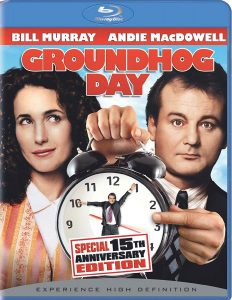ABC’s “Designated Survivor” strained throughout its first season to show that President Tom Kirkman (Kiefer Sutherland) is a good, decent and refreshingly different type of president. But because the show operates on a superficial level, it’s easy to expose the trick. Yes, he’s unquestionably – and boringly – a great guy; he loves his family, he treats everyone decently, he listens and learns, and so forth. But just as clearly, he’s as bad of a president as Bush, Obama and Trump.
OK, he’s not quite that bad, but since this is a fictional, supposedly inspirational TV show, can’t we aim a little higher than “slightly better than actual presidents?”
Much is made of the fact that Kirkman is an independent. After the early episodes, Reason Magazine even said Kirkman is a president libertarians could get behind. But “independent” simply means he’s not a member of a political party. By no means does it indicate that he opposes the platforms of the major parties; indeed, his positions are consistently nanny-statist. By not being a member of a party and by not having to run for office, he’s above party politics; because of his decency, he’s not susceptible to corruption or heavy-handed lobbying. But it’s hard to imagine he’d argue with Democrats about their party platform.
The Democrat and Republican parties of “Designated Survivor” aren’t sweating the fact that Kirkman isn’t one of their own; indeed, they are no doubt happy about the money they are saving. He follows their big-government agendas, and no effort or expenditure is needed.
The little guy, a.k.a. the common citizen, wouldn’t notice much difference under a Kirkman presidency compared to Bush, Obama or Trump. Here are a few things that are business-as-usual under the Kirkman administration:
- Police in most states still have the right to legally steal your stuff under civil asset forfeiture laws.
- Prisoners in Gitmo still have their Sixth (speedy trial) and Eighth Amendment (cruel and unusual punishment) rights violated daily.
- Middle Easterners, particularly those who live in areas that terrorists have infiltrated, still fear the sky. The drone bombings continue.
- The health care-insurance-government complex stays in place; health care is pricier and less accessible than it should be.
- The War on Drugs continues — wasting money, destroying lives and enriching drug cartels.
- The federal debt still counts upward every day.
These are my pet issues, but I challenge you to think of your favorite issues and ask if the Kirkman administration has changed things for the better.
Of course, Congress writes laws; the president only has the legal power to erase or write executive orders. However, as “Designated Survivor” demonstrates, the president always has the power of the pulpit. Indeed, Kirkman uses his likable-fellow status or the skillful maneuvering of staffers Aaron (Adan Canto) and Emily (Italia Ricci) to achieve his policy goals. Throughout the 21 episodes, Kirkman does not address any of the aforementioned issues in any way; they aren’t on his radar.
Granted, “Designated Survivor” is not “24”; we don’t see every moment of his presidency. But we can safely assume this commander-in-chief did not, for example, end the drone war offscreen. While the issues listed above – and dozens of other issues where the GOP and Dems agree – are never discussed in the mainstream media (which prefers the entertainment value of a Dem-GOP conflict), they would be if someone in a position of power (like the president) took a position contrary to the status quo.

One might argue that those are the tough issues, and the freshman president needs to establish a foundation of trust with other politicians and the American people before he can address them. However, Kirkman has expressed admiration for Lincoln and FDR, which means he’s either stuck on the saintly elementary school teachings about those figures, or he genuinely admires them. At any rate, it’s safe to say that if something – the drone war, the debt, etc. — is baked into the fabric of modern American government, he’s not going to be a rogue looking to change course.
OK, but surely Kirkman has done some good things, even if on a small scale, right? Sure. In the season finale, he declines to imprison Abe Leonard (Rob Morrow), the reporter who mulls revealing that the feds captured the wrong man in the Capitol bombing that wiped out most of the government. Instead, he asks that Abe hold off on publishing the story for a while, appealing to his shared sense (Abe’s a mainstream journo, after all) that it’s bad for America if the American government looks bad. A picture of an ailing FDR – judiciously not published at the time — tips the scale. Certainly, it’s decent of Kirkman to not throw his potential political enemy in a cage like Lincoln might’ve done. But even better, considering the power he wields, would be if he worked to overturn the law allowing imprisonment of journalists on national security grounds.
(Interestingly, President Palmer does imprison a journalist in Season 2 of “24.” He’s another example of a president we are asked to root for mostly because he is a protagonist. To be fair, when he battles the warmongers later that season, it’s easy to pull for him. But he also allows Nina to legally murder Jack in Season 2, and allows Jack to wrongfully be labeled an enemy of the state in Season 3. As with Kirkman, we’re repeatedly given the impression that Palmer is a great guy — mainly because Jack respects him so much — but his body of work doesn’t hold up to scrutiny. Continuing the “24” comparison, Maggie Q’s FBI agent Hannah Wells is the Jack Bauer to Kirkman’s Palmer. And the fact that Wells respects Kirkman helps to trick a viewer into thinking Kirkman is wonderful.)
Many of Kirkman’s good actions come off that way because his opponent is cartoonishly evil. Early in the season, he uses the federal strong arm to stop Michigan Governor John Royce (Michael Gaston) from persecuting Muslims. The way-too-suave Peter MacLeish (Ashley Zukerman), who lands the VP job, turns out to be part of the cabal that blew up the Capitol and is looking to take over the government.
The gun-control bill episode tries to play a good-evil dichotomy, too, by pitting Kirkman against Montana Governor Jack Bowman (Mark Deklin), who opposes gun bills on principle (The principle being that he’s the governor of Montana). The audience never learns the bill’s specifics, and Kirkman himself admits it’s a flawed bill, yet every music, framing and staging strategy is used to play up Kirkman and his allies as the righteous ones. For a viewer not already in the gun-control camp, it comes off empty. For no viewer does it play as nuanced.
In the finale, Kirkman’s administration – thanks entirely to the Bauer-esque Wells – exposes and dispatches the actual Capitol bomber, and then we see “Designated Survivor” really straining. Kirkman gives a speech that gets applause on par with President Whitmore’s “Today, we celebrate our Independence Day!” But not only is it much blander – Kirkman has cultivated a grandfatherly Fireside Chats manner – there’s nothing much worth celebrating.
Yes, they caught the actual terrorist and set the record straight about the original suspect (who – woopsie! – died in prison in the meantime). But the organization led by Patrick Lloyd (Terry Serpico) is still very much in place. As the Onion AV Club points out, the finale’s optimism is unearned. And if we’re to assume “Designated Survivor” takes place in the real world, the Kirkman administration is now in the position of waging a War on Terror not only in the Middle East, but also against Lloyd’s domestic group. The citizenry on “Designated Survivor” would more likely be pessimistic, as they watch the odds of the wars ending in their lifetime becoming more and more remote.
All of this having been said, Season 2 could turn “Designated Survivor” from an inch-deep show into something brilliant. All the writers have to do is have Hannah discover a recording from before the Capitol bombing of Kirkman conspiring with Lloyd. It would explain a lot – from Kirkman supposedly not suspecting the shifty-as-hell Homeland Security Advisor Jay Whitaker (Richard Waugh) of being the traitor inside the White House, to the fact that Lloyd’s cultists are convenient patsies. It would significantly deepen Kirkman’s character without contradicting any of his actions in Season 1, as it was all part of the plan to gain power.
It would instantly make him the greatest villainous commander-in-chief on TV since “House of Cards’ “ President Underwood (and don’t worry about losing a hero; the show already has a great one in Hannah Wells). What’s more, positioning Kirkman as the villain would make Season 2 less creepy than Season 1’s zombie-like celebration of the status quo.

